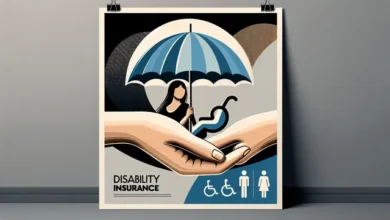
The Ultimate Guide to Renters Insurance: Why It’s Essential and How to Choose the Right Policy
If you’re renting an apartment, house, or condo, you’ve likely heard of renters insurance. But do you really need it? What does it cover, and how do you choose the right policy? In this blog post, we’ll break down everything you need to know about renters insurance, why it’s essential for renters, and tips for finding the best coverage to suit your needs.

What Is Renters Insurance?
Renters insurance is a type of insurance policy specifically designed for people who rent their living spaces. Unlike homeowners insurance, which covers the actual structure of a home, renters insurance focuses on protecting your personal belongings, providing liability coverage, and offering additional living expenses if your rental becomes uninhabitable.
It’s a common misconception that a landlord’s insurance will cover your personal belongings in case of disaster. While your landlord’s policy typically covers the building itself, it does not extend to your personal items or liability. That’s where renters insurance comes in, providing peace of mind and financial protection.
Why Is Renters Insurance Important?
Imagine losing your furniture, electronics, clothing, and other possessions in a fire or theft. Replacing all of these items out of pocket could cost thousands of dollars. Renters insurance ensures that your valuables are protected against risks like fire, theft, vandalism, and certain natural disasters. Even smaller mishaps, like a burst pipe damaging your laptop or furniture, can be covered under renters insurance.
Accidents happen. If someone gets injured in your rental property, you could be held liable for their medical bills—even if the incident wasn’t entirely your fault. Renters insurance includes liability coverage, which helps protect you from paying out of pocket for injuries or damages caused to others while they’re in your home. It may even cover legal fees if you’re sued.
If your rental becomes uninhabitable due to a covered event, such as a fire or severe water damage, renters insurance can cover additional living expenses. This includes temporary housing, meals, and other costs incurred while your rental unit is being repaired.
One of the best things about renters insurance is its affordability. Policies typically cost between $10 and $20 per month, depending on your location, the amount of coverage you need, and other factors. This small monthly expense can save you significant financial stress in the event of a disaster.
What Does Renters Insurance Cover?
Renters insurance policies generally include the following components:
This covers your belongings, such as furniture, clothing, electronics, and appliances, against risks like fire, theft, vandalism, and certain natural disasters. It’s important to note that some high-value items, such as jewelry or collectibles, may have coverage limits. You might need to purchase additional coverage, called a rider, for these items.
Liability coverage protects you if someone is injured in your rental space or if you accidentally cause damage to someone else’s property. For example, if your dog bites a visitor or you accidentally let a bathtub overflow and flood a neighbor’s apartment, your liability coverage can help pay for damages and legal fees.
If your rental becomes uninhabitable due to a covered event, ALE coverage helps pay for temporary housing, meals, and other related expenses. This ensures you’re not left scrambling to cover unexpected costs while waiting for your rental to be repaired.
Some renters insurance policies include coverage for minor injuries sustained by guests in your rental, regardless of who was at fault. This can help prevent small incidents from escalating into costly lawsuits.
What’s Not Covered by Renters Insurance?
While renters insurance offers broad protection, it doesn’t cover everything. Here are a few common exclusions:
- Flood and Earthquake Damage: Standard renters insurance policies typically don’t cover damage caused by floods or earthquakes. If you live in an area prone to these events, you may need to purchase separate coverage.
- Pest Infestations: Damage caused by pests, such as termites, bedbugs, or rodents, is usually not covered.
- Roommate’s Belongings: Your policy only covers your personal belongings, not those of your roommates. They’ll need their own renters insurance policies.
- Business-Related Losses: If you run a business out of your home, renters insurance won’t cover business-related losses. You may need a separate business insurance policy.
How to Choose the Right Renters Insurance Policy
Finding the right renters insurance policy can feel overwhelming, but with a few simple steps, you can ensure you’re getting the coverage you need:
Start by taking inventory of your belongings. Estimate the value of your furniture, electronics, clothing, and other possessions to determine how much personal property coverage you need. Don’t forget to consider high-value items that may require additional coverage.
Shop around and compare policies from different insurance providers. Look at coverage limits, deductibles, and monthly premiums. Make sure the policy covers the risks most relevant to your living situation.
Many insurance companies offer discounts for bundling renters insurance with other policies, such as auto insurance. You may also qualify for discounts if your rental has safety features like smoke detectors, security systems, or deadbolt locks.
Read the policy details carefully to understand what’s covered and what’s excluded. Pay close attention to coverage limits, deductibles, and any additional riders you may need for high-value items.
Look for an insurance provider with a strong reputation for customer service and prompt claims processing. Read reviews and ask for recommendations to ensure you’re working with a reliable company.
Final Thoughts
Renters insurance is an essential safety net for anyone renting their home. It provides financial protection for your belongings, liability coverage, and peace of mind—all for a relatively low cost. While it may not be legally required in most places, many landlords now make it a condition of leasing a property. Even if it’s not mandatory, the benefits of renters insurance far outweigh the expense.
By taking the time to understand your needs, shop around for the best policy, and ensure you have adequate coverage, you can protect yourself from life’s unexpected events. Don’t wait until disaster strikes—get renters insurance today and enjoy the peace of mind that comes with knowing you’re covered.






